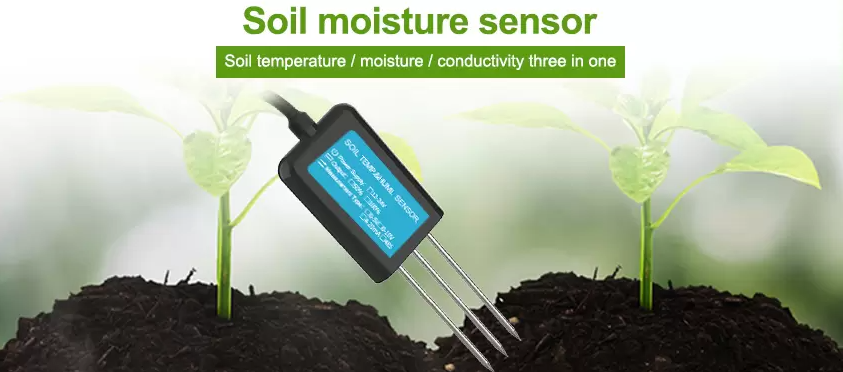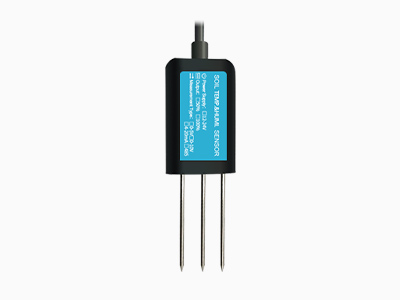Wireless soil moisture sensors
Wireless soil moisture sensor change the way we monitor and manage soil moisture levels in agricultural, horticultural, and landscaping applications. These innovative devices use advanced technology to provide real-time data on soil moisture content, enabling farmers and gardeners to optimize irrigation practices and conserve water. This article explores the advantages and potential applications of wireless soil moisture sensors.

The key advantages of wireless soil moisture sensors
Wireless soil moisture sensor offer several key advantages over traditional manual monitoring methods. These sensors are equipped with wireless connectivity, allowing data to be transmitted remotely to a central monitoring system or mobile device. This eliminates the need for manual data collection, saves time, and provides instant access to crucial information for making informed decisions regarding irrigation and plant health.
The benefits of wireless soil moisture sensors
One of the main benefits of wireless soil moisture sensors is their ability to provide real-time data on soil moisture levels. By continuously monitoring the moisture content in the soil, these sensors enable users to detect any fluctuations or imbalances promptly. This real-time information empowers farmers and gardeners to optimize irrigation schedules, ensuring that plants receive the correct amount of water, preventing overwatering or drought stress.

Wireless soil moisture sensors also contribute to water conservation efforts. By providing accurate and up-to-date soil moisture data, these sensors enable users to implement more precise and efficient irrigation strategies. This optimized irrigation reduces water wastage, improves water use efficiency, and ultimately helps conserve this precious resource, particularly in regions experiencing water scarcity or facing environmental challenges.
Another advantage of wireless soil moisture sensors is their versatility and scalability. These sensors can be installed in various soil types and depths to measure moisture levels at different depths of the root zone. This flexibility allows farmers and gardeners to obtain a comprehensive understanding of how soil moisture varies throughout their crops or landscapes. Moreover, wireless connectivity enables the integration of multiple sensors, providing a detailed picture of soil moisture across large areas.
The application of wireless soil moisture sensors
The application of wireless soil moisture sensors extends beyond agricultural and horticultural settings. Landscapers and turf managers can benefit from these sensors by monitoring soil moisture levels in parks, golf courses, or sports fields. By having accurate data on hand, decision-makers can adjust irrigation schedules, preventing overwatering or under watering, which can result in the deterioration of turf quality and increased maintenance costs.

A wireless soil moisture sensor system can be easily integrated with automation systems for more efficient irrigation control. By connecting the sensor system to irrigation controllers, users can automate the irrigation process based on real-time soil moisture data. This automation reduces the manual effort required for monitoring and adjusting irrigation, ensuring that plants receive the right amount of water at the right time.
In conclusion, wireless soil moisture sensors offer numerous advantages in monitoring and managing soil moisture levels. Their real-time data capabilities, water conservation benefits, versatility, and scalability make them essential tools in agriculture, horticulture, landscaping, and turf management. By utilizing wireless soil moisture sensors, users can optimize irrigation practices, conserve water, and maintain healthy plants, contributing to sustainable and efficient land and resource management.
